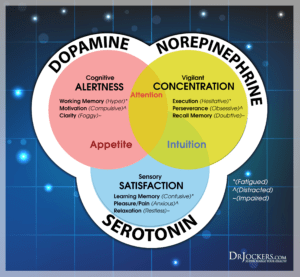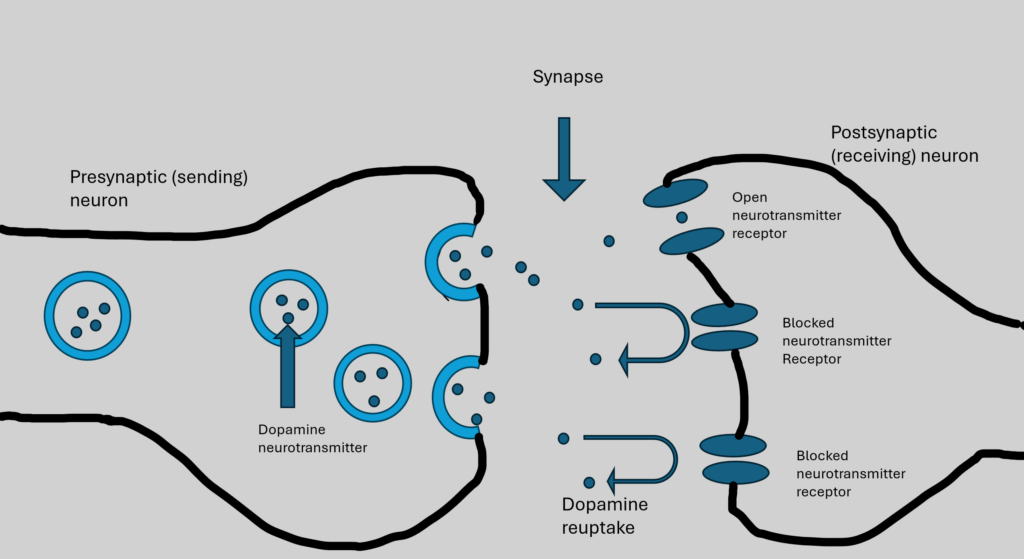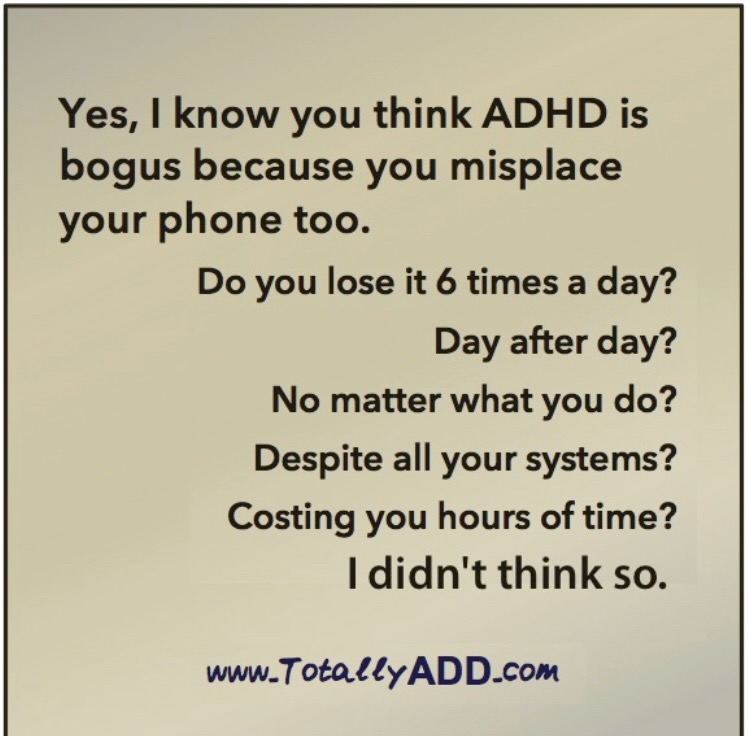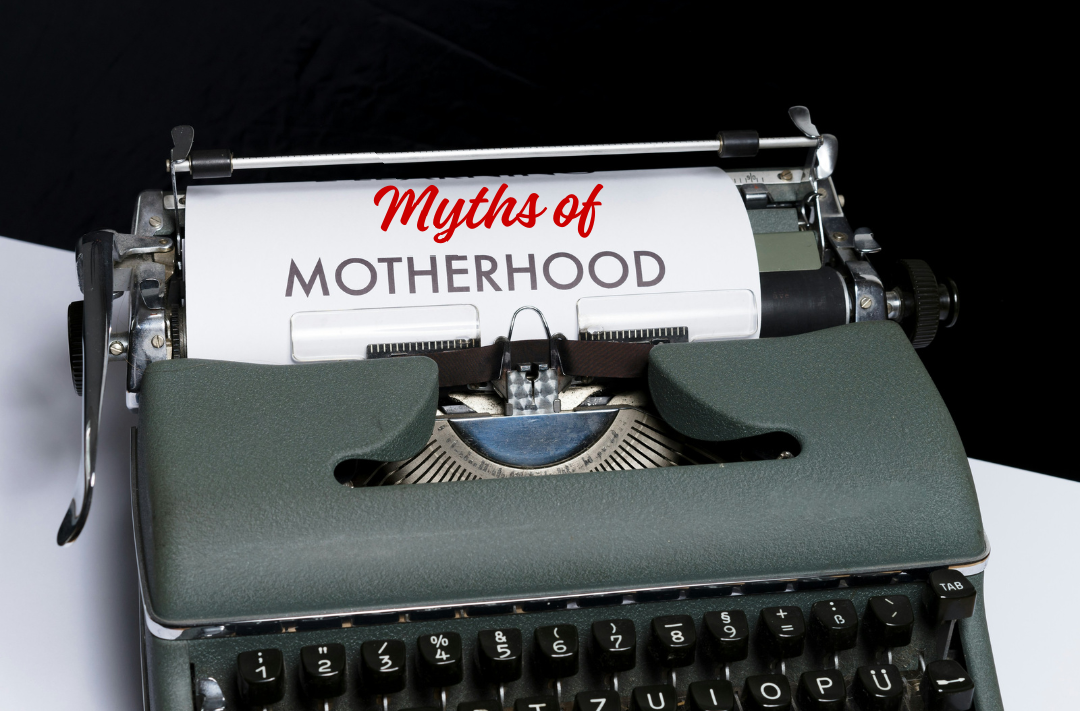As someone diagnosed (later in life) with ADHD and a therapist who specializes in working with adults with ADHD, I am uniquely qualified to answer the question, what is it like having ADHD.
Most people think of ADHD as little boys who have behavior problems, or it comes from bad parenting or too much electronics, or even poor nutrition.
But it is really a neurodevelopmental difference that is about 75% genetic.
So let’s first talk about what ADHD isn’t.
- Just experienced by boys
- About behavior
- About bad parenting
- About too much screen time
- About poor nutrition
- A deficit of attention
- Just in children
- About intelligence
While still considered a disorder, ADHD is actually just an expression of neurodiversity. In other words, there is not an absolute truth on there only being one perfect way a brain should function – a belief that if your brain is anything other than neurotypical, something is wrong with you.
Let’s talk about what ADHD is
ADHD is complex. It is a syndrome that presents many challenges. And the severity of these challenges differs with each individual.
ADHD =
* a complex syndrome of
Page 20, A New Understanding of ADHD in Children and Adults: Executive Function Impairments, Thomas E. Brown
* developmental impairments of executive functions,
* the self-management system of the brain,
* a system of mostly unconscious operations.
* These impairments are situationally variable,
* chronic, and significantly interfere with functioning in many aspects of a person’s daily life.
The challenges result from the dysregulation of neurotransmitters (messengers to the brain) that make the executive functions function.
These neurotransmitters are dopamine, norepinephrine, and serotonin.

Executive function is how you navigate every part of your day. From getting up in the morning and starting your day to deciding what you are going to do, being able to start what you are going to do, staying focused on what you are doing, and if you are pulled away, going back to what you were doing. Executive function also includes working memory, eg. remembering what you are supposed to do for that day.
While the DSM V (Diagnostic and Statistical Manual for Mental Disorders) does not include emotion dysregulation, it is still a symptom of ADHD. Because it is difficult to manage emotions when the executive function isn’t always functioning as you need it to in the moment.
Living with ADHD is unique to each individual. Some differences are the age of diagnosis, gender, and proper treatment and support. While symptoms are similar, no one person experiences it the same.
Living with undiagnosed ADHD
Due to more recent research, many adults are receiving an ADHD diagnosis. Not because they suddenly get ADHD but because the research has shown a much broader description than hyperactive young boys. So this means that many adults have been living all of their life believing that there is inherently something wrong with them, or they aren’t smart enough, or are incapable of achievement, or are lazy and selfish – to name a few.
An example of what living with undiagnosed “inattentive type” can look like:
It is like believing you are an imposter in your own life, wanting desperately to feel normal and understood. Watching others be able to act, motivate, and want to do things, while you want to want to do things but feel paralyzed, anxious, inadequate, and worthless, is demoralizing. Hence, creating a vicious cycle of self-judgment and low self-esteem.
This example can be what the symptom of hyperfocus can look like:
Hyperfocus is a strength (one of many) of ADHD but can be problematic when you struggle to pull yourself away from a task no matter what is happening around you, or who you might be ignoring.
It feels good to be so absorbed, interested, and focused on something you are working on and so irritating when someone or something is “forcing” you to pull away. But it also doesn’t feel good later when the struggle to pull away negatively impacts a relationship, or you ignore a higher priority task which results in a negative consequence.
Another challenge is:
Being bored and struggling with internal restlessness (a form of hyperactivity) can be a recipe for disaster. It feels like you want to crawl out of your skin. This is because many with ADHD can feel trapped when they are bored. Boredom extends to everything. Nothing seems interesting; so trying to make a decision on what to do is paralyzing. And since having ADHD means you have an interest-based nervous system and no internal reward system, boredom is mentally, physically, and emotionally painful.
A myth to think about is:
There is a myth out there that ADHD is overdiagnosed. But the truth is, clinicians often misdiagnose ADHD as anxiety and depression. If you are living with undiagnosed ADHD, you are probably really anxious and at times depressed because people oftentimes over-compensate with coping skills, causing a lot of distress.
For example, the DSM describes the inattentive type as having difficulty with focus, and sometimes as an inability to focus. But in reality, it is over-focus. The inattentive brain can’t filter out what isn’t important. So it is telling you that everything is of equal importance and urgency.
This causes immediate overwhelm and paralysis – hence – anxiety.
Struggling with time management and organization also causes anxiety.
If you struggle with activation and motivation, that can lead to depression because it isn’t that you don’t want to start on a task or your day, it is just that it is really, really hard. Nobody wants to feel unmotivated all of the time. If you received the message that you were lazy growing up, you might have internalized this to be true. This also causes depression and anxiety.
There are gender differences with ADHD
Although it is a myth that only little boys have ADHD, there are gender differences. Generally, boys exhibit hyperactivity by outward physical behavior such as climbing on things, difficulty sitting still, getting in trouble in the classroom, and impulsive outbursts and behavior sometimes followed by shame or regret.
Because boys’ symptoms tend to be observable, they can be easier to diagnose.
Girls generally exhibit hyperactivity by talking fast or constantly interrupting others. Typically, girls are people pleasers and do better academically because pleasing is the motivator. The fear of disappointing teachers, parents, or yourself is a motivator for developing coping skills that mask the struggle.
These coping mechanisms that mask symptoms are a big reason girls often get missed. This is problematic. The anxiety it causes to maintain the coping mechanisms along with the negative and inaccurate internalized belief systems that are created result in a lot of suffering.
This doesn’t mean that boys can’t present like the description of girls or that girls can’t present like the description of boys. And if either is more of the inattentive type, then they both can easily get missed.
Then there is the estrogen connection
Estrogen is what helps modulate the neurotransmitters, dopamine, serotonin, and norepinephrine (made from dopamine). In an ADHD brain, there is a dysregulation of dopamine.

As you can see in the picture above, there aren’t enough open receptors in the postsynaptic neuron to let the dopamine in and send the message to motivate, get started, and stay focused. So the dopamine is quickly slurped back up into the presynaptic neuron and left to hang out where it started.
And when the estrogen drops, there is even more dysregulation of dopamine, so the symptoms are exacerbated. That means at a certain time of the month, or right after giving birth, or during perimenopause and menopause, their ADHD will have a bigger impact on their life, than at other times. In addition, this is why girls and women with ADHD are more at risk for PMDD and/or a perinatal mood and anxiety disorder, and/or experiencing ADHD mom burnout more often.
What is it like living with diagnosed ADHD
There are many people who have been diagnosed at a young age or later on in life who never got the right support or treatment for whatever reason. And sadly, some refuse to acknowledge that their brain works differently, causing unnecessary struggle.
Perhaps the biggest problem with resistance to understanding how your brain works is that you aren’t giving yourself the opportunity to live up to your full potential or to feel fulfilled and connected.
So what does it mean to know how your brain works?
It means educating yourself on ADHD and executive function (EF). Figure out what your EF strengths and struggles are and how, when, and where they impact you.
Learn what helps your brain—things like exercise, meditation, connection, and knowing when to stop and reset help many people.
Seek out the support you need to thrive with ADHD.
Some people find working with an ADHD-specific coach (ADHD-specific is crucial) helps them put together appropriate systems and strategies for EF struggles. Some people find working with a therapist who is well versed in ADHD is helpful. A therapist is great for working through the demoralization that happens when diagnosed later in life, letting go of social expectations, especially for girls and women, as well as working on emotion regulation since this is also a crucial part of ADHD.
What is hard is when you are diagnosed later in life and your friends, family, physicians, etc don’t believe you have ADHD because you are high achieving or highly gifted (2E or twice-exceptional).
This is especially difficult if your partner doesn’t believe you because they don’t believe ADHD exists and they shame you for it.
Sometimes friends make those comments like, “everyone is a little ADD.” Of course, they may not mean to be insensitive. But when you try and share how that feels to you, they minimize how you feel and tell you to not be so sensitive. Obviously, saying you are too sensitive, shows they are being insensitive. And it hurts to be dismissed and invalidated.
This means that it is not only about educating yourself on ADHD, it also requires you to educate those closest to you. Some people will be willing to learn and, sadly some won’t.
One reason this can be so painful is something called Rejection sensitivity dysphoria (RSD). RSD is a term that is specific for those with ADHD, but not everyone who has ADHD.
RSD happens when someone with ADHD is rejected, feels as if they have disappointed someone they care about, or experiences real or perceived criticism. It might be hurtful for anyone in these situations, but for someone with ADHD, it is so much more emotionally unbearable. Hence the word dysphoria, which in Greek, means “difficult to bear.” It is so unbearable in fact, that it can automatically trigger a major depressive response.
Sometimes it is hard to get appropriately prescribed medications
Many people with ADHD run into situations where a pharmacy or doctor treats them like they are drug-seeking when trying to get the stimulants necessary to help manage their ADHD symptoms.
People don’t understand that stimulants work very differently with the ADHD brain than with a neurotypical brain. For someone with ADHD, it calms and quiets the brain. For someone who is neurotypical, it is like drinking 12 cups of coffee. Neurotypicals who use Adderall or Ritalin to get high, are a major reason it is difficult for those with ADHD to get their medication.
ADHD Superpowers
Now let me tell you what is wonderful about living with ADHD. First of all, most people with ADHD have a higher IQ than neurotypicals. Consider these 3 historical figures who were likely to have had ADHD based on their traits: Thomas Edison, Albert Einstein, and Alexander Graham Bell. Some more current smarties are Dr. Ed Hallowell, a psychiatrist from Harvard who has written several books on ADHD, and Pulitzer Prize winner Katherine Ellison.
ADHD folks are incredibly creative. Justin Timberlake, Adam Levine, Ryan Gosling, Solange Knowles, and Channing Tatum are among a few.
Because many with ADHD are highly sensitive and empathic, they love deeply. They pick up on their loved ones’ emotional state much more easily than neurotypicals which allows them to proactively attend to the needs of their loved ones.
The superpower of hyper-focus allows those to work attentively for long periods and can be an asset for careers requiring long work hours and intense focus.
The ADHD person is also really good at scanning and seeing things that others don’t notice. This ability is being able to see the big picture. This is why many people with ADHD are entrepreneurs like Sir Richard Branson, owner of the Virgin Group.
Persistence is a strength because there is so much those with ADHD have to overcome.
Remember that ADHD is complex and usually co-occurs with other things like depression and anxiety. It is the persistence that drives the work to live well with ADHD and connects to the strengths that can at times outweigh the struggles.
Jacqueline V. Cohen is a Licensed Professional Counselor, an ADHD Certified Clinical Specialist Provider, and a Certified Clinical Hypnotherapist specializing in Adult ADHD. You can contact her by email or visit her website.




One Response
Very well written and interesting read. I found it informative, detailed and enjoyable to read. Thanks.
– another late diagnosed human